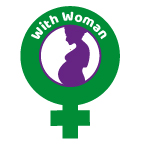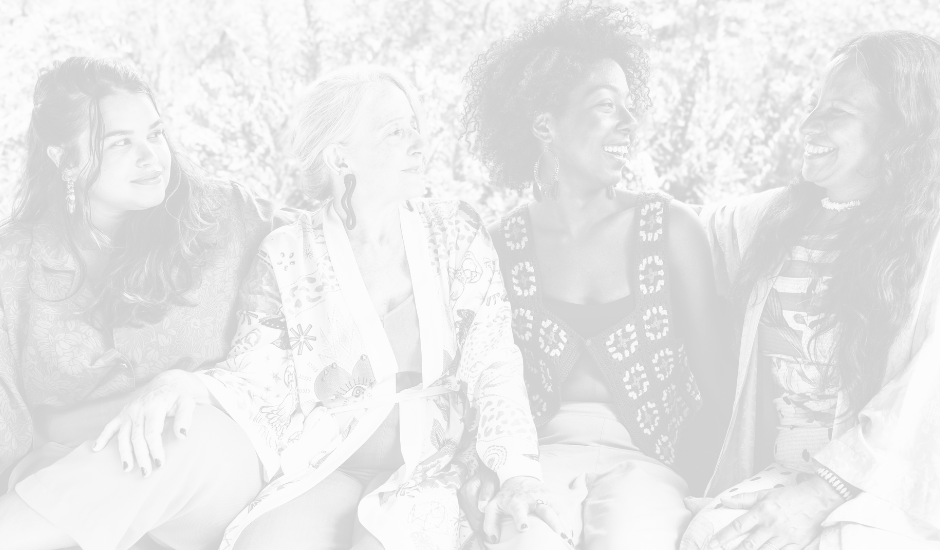We are birth workers and activists, focused on the pregnancy, birth, and breastfeeding concerns of women. Sex-based language is important due to sex-based oppression.
The sex chromosomes you receive at conception, the sex you are born as, has a profound effect on your reproductive, physical and social life. Those who are female have specific health needs and they are discriminated against based on their sex. We believe that confusing the idea of gender identity and the reality of sex risks adverse health consequences and deeper and more insidious discrimination against women. We stand with women against oppression based on sex.

1. We understand biological sex and reproduction
We understand female physiology and the differences between women and men. Humans, like all mammals, have two sexes and reproduce sexually; the female carries, gives birth to and breastfeeds the child. Pregnancy, birth and early motherhood are fundamentally sexed issues, not gendered. Sex matters in healthcare. For example, if a woman has abdominal pain, it would be right to ask about the possibility of pregnancy even if she identifies as a man. Males, including trans women, do not need pregnancy tests or cervical smears. Biological sex difference is medically important and has nothing to do with gender identity.
People can change their gender identity and their legal sex, but not their biological sex, regardless of cosmetic surgery or hormone treatment. Women reporting medical problems from taking testosterone, such as uterine or vaginal atrophy, have these problems as a result of the effects of these hormones on a female body.
2. We are feminists, against sex-based oppression.
We think the social, medical and psychological problems in maternity care often stem from patriarchal oppression of women, women’s bodies, and women’s reproductive capacities. Obstetric violence is a form of sex-based violence against women. Undermining women’s confidence in their bodies is a form of sex-based oppression. Lack of support for mothers is a form of sex-based exploitation. These things happen to women, because they are women. A feminist sex-based analysis is necessary to dismantle these problems. We need sex-based language in order to combat sexism.
Gender is the name for the hierarchical system that oppresses women on the basis of sex, in part by enforcing sex stereotypes. Categorising by gender identity, not sex, means losing the tools to discuss sex-based oppression and women’s specific issues. As men are often presented as the norm, talking about ‘people’s rights to reproductive freedoms’ hides the fact that it is mainly women who do not currently have full reproductive freedoms. The term ‘birthing people’ obscures the sexed nature of any power imbalances. When you fail to specify sex, you obscure the difference in physiology, psychology, rights and experiences particularly of women, who already have less voice because we live in a world designed by men for men.
Midwives (meaning ‘with women’) have long fought for woman-centered maternity care. We respect the physiological capacity of women’s bodies, and do not see them as faulty, leaky, men, but rather work to help all women feel confidence in their bodies. For women who give birth and mother children, the experience can be transformative. For some, a great achievement and a uniquely female and powerful experience, for others the moment in which they understand how their sex impacts their social experience.
3. Newborn babies

Midwives observe and record the sex of newborn babies on the basis of external genitalia. As feminists we endeavour not to apply sex-role stereotypes to the behaviour or appearance of babies. We oppose the appropriation of the phrase ‘assigned sex at birth’ from the context of Disorders of Sexual Development (DSD, sometimes called intersex) medicine to more general use. A tiny proportion (0.02% to 0.05%) of babies are born with ambiguous genitalia, but those babies are still a boy with a DSD or a girl with a DSD.
4. What is the problem with simply saying ‘women and birthing people’?
‘Women and birthing people’ turns woman from an inclusive word that describes all adult female people, into a gender identity (thereby including some males). It sets up the fiction that some people who give birth are not women. We do not use gender identity as a category in health care where the sex of the person is the central issue. In producing public information, or talking generically, we support the approach of NICE*, which is to use the terms ‘woman’ and ‘mother’ whilst acknowledging that this includes female people who do not identify as women or mothers but who are pregnant or have given birth. A woman who is butch, or ‘trans masc’ is still a woman in the sexed meaning of the word.
The move to gender-neutral language can also serve to confuse and obfuscate. For example if you are promoting the mother-baby dyad then ‘keeping the baby and parent together after birth’ has a different meaning to ‘keeping the baby and mother together after birth’. We want clear communication that can be understood by all women, including such as speakers of other languages or those with learning difficulties, who may not understand the terms ‘perinatal services’ or ‘uterus havers’. In producing public information, or talking generically, we use the terms ‘woman’ and ‘mother’.
The term sometimes ends up being ‘birthing people’, erasing the word woman altogether. Some birth workers, and some women, find that offensive and objectifying. It takes away the social and political meaning of woman and removes women from the centre of the story. For some women and birth workers this language change therefore serves to make them feel excluded from their own woman-centred world. Also, it sounds to some like ‘breeders’.

5. What about pregnant trans men and non-binary people?
We are advocates for women and strive to always be compassionate and caring. In talking with individual service-users, professionals provide individualised care, this can include use of terms, pronouns, name and any other terminology requested by that woman.
We are aware of the rise in numbers of women, especially young women, seeking medical and surgical intervention due to gender dysphoria. As midwives and birth workers who support birth as a physiological and social experience, we know that medical or surgical interventions should be used judiciously where evidence shows benefits outweigh risks, and must be rooted in the informed choices and autonomous interests of women. This has unfortunately not always been the case in women’s ‘healthcare’. We apply this principle to medical intervention more widely, and are concerned that women (and possibly their babies) may be harmed by the rapid growth of hormonal and surgical interventions for gender dysphoria, that lack evidence.
For those who have rejected the term woman to describe themselves, pregnancy, birth and breastfeeding might be complex. As in all our care we would use a sensitive and person centred approach to each individual, including being open to complex conversations around identity and pregnancy. We know that some women detransition, and express regret that the interventions they have had have harmed them, including their ability to breastfeed. Simply using non-sexed language may be enough and right for some, but not necessarily for all.
6. What do you do?
We continue to offer high quality, respectful, women-centred midwifery, doula work and breastfeeding support.
We advocate for women’s rights including but not limited to; promoting respectful, women-centred care; challenging obstetric violence; respecting birth as a social and physiological event; promoting anti-racist care to improve outcomes for black and brown women; and ensuring disadvantaged women receive the best care available.

We use the word woman with its sexed meaning. We support other individuals and organisations to use sex-based language when they want, and not be forced into using language which they do not agree with. We want to ensure that respecting different gender identities of individuals doesn’t silence a sex-based understanding of human reproduction or sex oppression.
We want to ensure that the impact of sex/gender-related language used in maternity services is properly considered to prevent negative consequences; for women or for birth workers being ostracised from their communities for not going along with new and debatable ideologies.
We support each other to have open discussion around maternity, birth, sex, and gender identity without moralism or accusations of transphobia where there is none. We support women who have been bullied for standing up for sex based language.
We are with women, and we will continue to fight for women-centred care and women’s reproductive rights as long as we need to.
___________
Footnotes:
- Postnatal care, NICE guideline [NG194]Published: 20 April 2021, https://www.nice.org.uk/guidance/ng194



Leave a comment